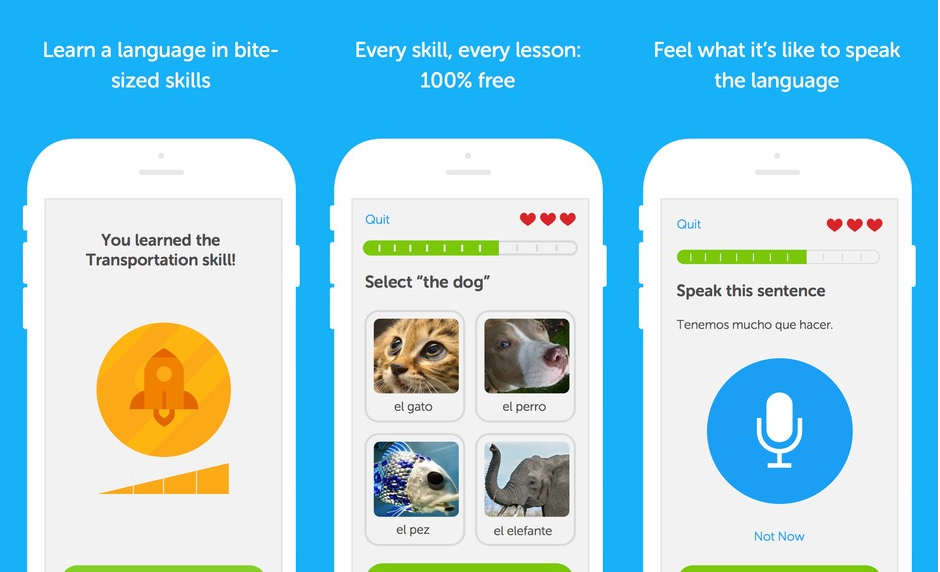- Language-learning company Duolingo just raised $30 million from CapitalG, an investment fund under Google’s parent company, Alphabet.
- This investment means the company is now valued at over $1 billion – making it Pittsburgh’s first unicorn.
- Duolingo’s success might also be tied to its distance from Silicon Valley, and the dramatically lower costs associated with that.
- Visit Business Insider’s homepage for more stories.
Language-learning service Duolingo just became Pittsburgh’s first unicorn, valued at $1.5 billion after a $30 million investment from Google’s parent company, Alphabet.
The company offers free language lessons on iOS, Android, and web, but most of its growth comes from the premium Duolingo Plus, which removes ads and lets users download lessons offline. Duolingo is currently the most downloaded education app in the world, and top-grossing language app.
Alphabet invested in Duolingo’s sixth funding round through its CapitalG investment fund, which focuses on later-stage startups and had previously invested in Duolingo, as well as in Airbnb, Glassdoor, and Lyft.
Duolingo may have tapped into a winning strategy by basing its operation away from the coasts. In 2018, Duolingo CEO and cofounder Luis Von Ahn described the company’s distance from Silicon Valley as an advantage in recruiting top talent.
"Being in a city that's on the upswing is pretty good because you're just getting a bunch of highly talented people wanting to move here. That has helped us," he said on Business Insider's podcast "Success! How I Did It."
Part of Duolingo's rise may be tied to its connection to Pittsburgh and Carnegie Mellon University. Von Ahn, who helped pioneer the CAPTCHA and reCAPTCHA verification systems, has been affiliated with Carnegie Mellon University in Pittsburgh for over a decade. The university provides an annual stream of graduates to work at Duolingo, and its leading reputation in tech has also led other major players to open research labs or offices in the city, including Uber, Google, and Facebook.
The other major advantage, according to Von Ahn, is a dramatically lower cost of living compared to Silicon Valley, and he estimates that as many as half of his employees own their own homes. In contrast, the West Coast tech hubs San Jose, San Francisco, and Seattle are three of the top five metro areas with the largest proportion of million-dollar homes in the US.
San Francisco in particular has become the icon of a city whose resources have been pushed to the limit by big tech. The city has an affordable-housing shortage, and one of the worst homelessness rates in the US. Even Facebook's CEO, Mark Zuckerberg, has acknowledged these problems. In an October Q&A, Zuckerberg said that Facebook was primarily expanding outside of San Francisco because the city's infrastructure was "tapped."


